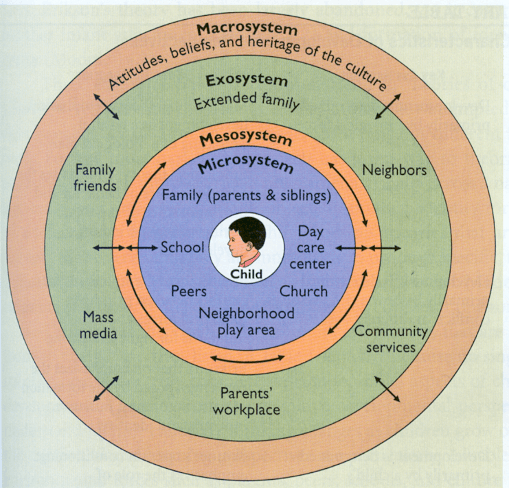How are you?
Is that a question you’ve been asked recently? Did you quickly respond with a polite “fine” or “good?” Here’s another: have you asked yourself how you are doing lately? Now it’s even more likely that this question hasn’t crossed your mind, or is a question you try hard to avoid.
There are a million, very real reasons that as a parent, you might rarely check in with yourself. And it’s no wonder- between appointments, driving from one outing to the next, coordinating schedules, figuring out what’s for dinner and juggling your child’s daily care, some days you hardly have a moment to think let alone ask yourself how you are doing it all. In my counseling work with families raising children with autism, I’ve met a lot of great parents who don’t have the luxury of time or energy to think about how they are doing, let alone do something about it. Many parents have nodded in agreement when I’ve suggested they carve out time for self-care and also chuckle under their breath or share that there just isn’t enough time in the day. But that lack of caring for themselves is taking a toll on parents, and more and more research is proving it.
Parenting challenges and autism
A 2011 study of parents of children with an autism diagnosis found that they experienced higher levels of anxiety, depression and stress compared to other parents1. A similar study in 2018 found that the parents of children with an autism diagnosis have greater demands on their time, higher levels of stress and are at a greater risk of experiencing financial, relationship and mental or emotional distress than parents of neuro-typically developing children.2 Over time, researchers have found that parents of a child with autism may also find their social connections shrinking, have problems with family dynamics and have a harder time maintaining employment and finding time for themselves.3 While every circumstance is different and every family has good days and bad, the data is clear: parents of children with autism are vulnerable to a lot of challenges and don’t have enough resources to help.
When you have a child who has medical and behavioral health needs, you will stop at nothing to find the services they need. Many parents find life after diagnosis becomes a blur of intakes, paperwork, insurance bills and a never-ending list of treatment options. This leaves little time or energy to think about caring for themselves. But have you ever considered the cost of not getting the help that you need, too?
An argument for building parental supports into early intervention models

Young children learn through interactions with their environment, which includes parents, other family members and all of their routines, beliefs, familiar places and community, as illustrated in Broffenbrenner’s ecological theory of development (fig. 1). Receiving a diagnosis of autism not only changes how a child interacts within their environment, but changes the underlying roles and needs of the family who shares that environment as well. When a part of a child’s environment or support system experiences change, so does the child, and vice versa. As parents of children with autism have higher mental health risk factors, it stands to reason that a supported family will in turn lead to a more supported child and thus, create better outcomes for the entire family system.4
Although limited, studies on the impact of parental supports after autism diagnosis are strong, demonstrating that when given access to education about autism, emotional supports and meaningful parent training, parents participate more actively in their child’s care and have better long-term benefits to enrolling into early intervention programs.5 Additionally, families given access to programs to help create positive coping skills, stress management techniques and education about asd have been shown to create long-lasting decreases in burdens related to caregiver stress and mental health.6
You Matter
It’s hard to find care for the ones we love, and even harder to accept help when we are the ones who need it. Taking care of yourself is another way we take care of our children, and that is why we have built a program that builds in support for everyone.
So, really… how are you? Give us a call today, and we can chat about it.
Sources
- Rezendes, D., Scarpa, A. (2011). Associations between parental anxiety/depression and child behavior problems related to autism spectrum disorders: the roles of parenting stress and parenting self-efficac ASD, PubMed Central, 2011 Dec 13, doi:10.1155/2011/395190
- Pcardi, A., Gigantesco, A., Tarolla, E., Stoppioni, V., Cerbo, R., Cremonte, M., Alessandri, G., Lega, I., Nardocci, F. 2018. Parental burdens and its correlates in families of children with autism spectrum disorder: a mulitcentre study with two comparison groups. Clinical Practice & Epidemiology in Mental Health, 14, 143-176.
- Adib N, Ibrahim M, Rahman A, Bakar A, Barkar R, Yahaya, H, Mansor W. 2019 Apr 25. Perceived stress among caregivers of children with autism spectrum disorder: a statewide study, International Journal of Environmental Resolutions and Public Health, 16(8), 1468.
- Catalano, D., Holloway, L., Mpofu, E. 2018. Mental health interventions for parent carers of children with autism spectrum disorder: practice guidelines from a critical interpretive synthesis (CIS) systematic review. International Journal of Environment Research and Public Health, 15, 341.
- Gentles, S., Nicholas, D., Jack, S., McKibbon, A., Szatmari, P. (2019). Parent engagement in autism-related care: a qualitative grounded theory study. Health Psychology and Behavioral medicine, 7:1, 1-18.
- Banach, M., Couse, L., Ludice, J. 2010. Family support and empowerment: post autism diagnosis support group for parents. Social Work with Groups; 33:69-83, ISSN: 0160-9513.


